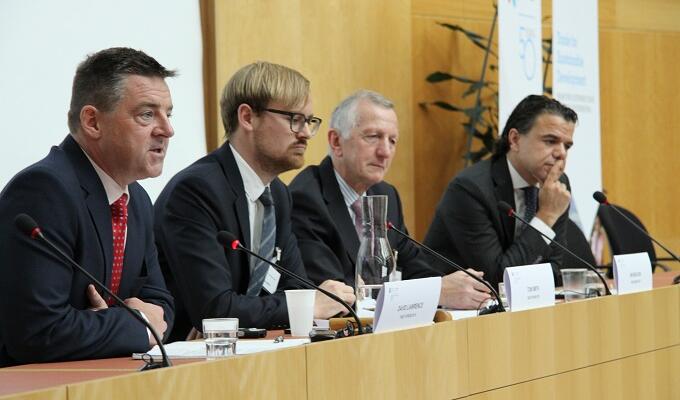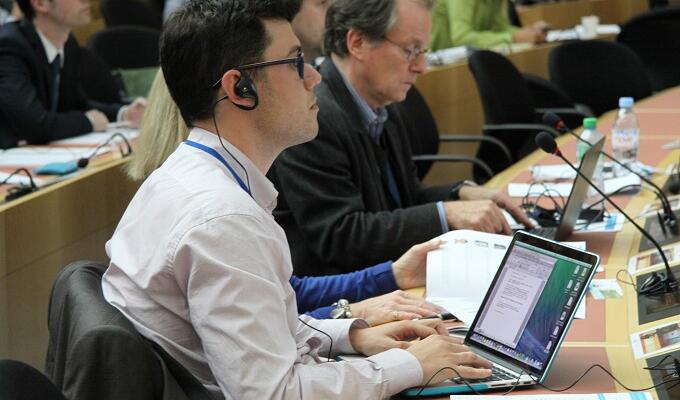

Buyers see transparency and traceability as the challenges for sustainability standards
Simplicity, effective communication, data sharing and supplier-supplier collaboration are key to supply chain sustainability, according to buyers who spoke during the second day of the International Trade Centre’s (ITC) Trade for Sustainable Development Forum.
The session on ‘The buyer perspective – sustainable sourcing and SME integration into supply chains’ focused on the perspectives of multinational buyers using standards in their sustainable sourcing policies, and the work they do with SMEs as part of their supply chains.
GS1, best known for its bar code system, is stepping up its role in waste management and tracking across many industries. ‘Its global trade item bar identifies, captures and shares information along the value chain,’ said GS1 Sustainability Director Jim Bracken, who added that, by expanding its network beyond its 1.3 million company members, GS1 can ‘join the dots’ within and between countries by identifying and tracking all parts of the value chain, from the farm to the consumer.
‘There is an opportunity to communicate better among suppliers and buyers, but it takes investment.’, said David Lawrence, Chair of AIM-Progress, who leads a 37-member company task force to improve responsible sourcing in supply chains. Mr Lawrence also shared that he hopes, by 2020, ‘there will be half the number of standards there are today.’
‘Technology will speed and improve the process of collecting and using data on sustainable standards,’ said by Tom Smith, Director of Insights and Planning at Sedex.
A participant argued that, while 'there are those who make the case for sustainable development, there are others who make the case for rape and pillage.' Such people advocate for unsustainable wages and poor business practices because, at the end of the day, sustainable practices make business costs go up.
‘There is no simple solution,’ said Mr. Lawrence. Those who are well informed in civil society, business, governments, and the UN have a stake in speaking out against such practices, he added. Public-private dialogue is the path towards feasible solutions.
There is a tremendous amount of good will and effort under way to address hot spots, added Mr. Bracken. The EU is testing the environmental footprint of detergents, electronics, metals, food, beverages, alcohol and even the complex issue of dairy. “They are modelling the cow,” he said. While there is buy in, it will take time to build critical mass, and “time is not on our side,” he said.
Panelists agreed that ITC could provide a neutral platform to address these issues, as it is at the heart of the standards debate.



